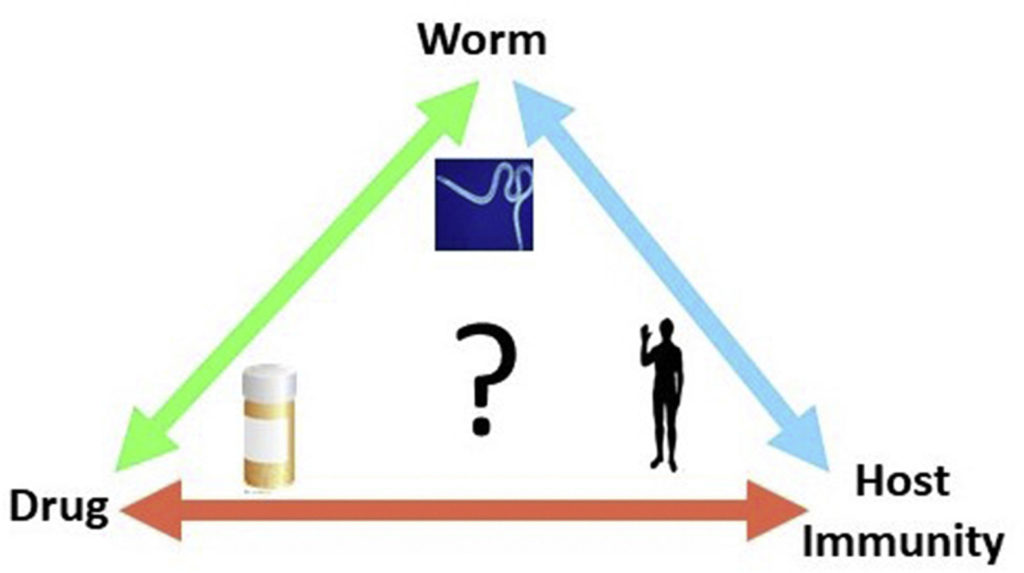Recognition and killing of Brugia malayi microfilariae by human immune cells is dependent on the parasite sample and is not altered by ivermectin treatment

Abstract
Mass administration of macrocyclic lactones targets the transmission of the causative agents of lymphatic filariasis to their insect vectors by rapidly clearing microfilariae (Mf) from the circulation. It has been proposed that the anti-filarial action of these drugs may be mediated through the host immune system. We recently developed an in vitro assay for monitoring the attachment to and killing of B. malayi Mf by human neutrophils (PMNs) and monocytes (PBMCs), however, the levels of both cell to worm attachment and leukocyte mediated Mf killing varied greatly between individual experiments. To determine whether differences in an individual’s immune cells or the Mf themselves might account for the variability in survival, PMNs and PBMCs were isolated from 12 donors every week for 4 weeks and the cells used for survival assays with a different batch of Mf, thereby keeping donors constant but varying the Mf sample. Results from these experiments indicate that, overall, killing is Mf-rather than donor-dependent. To assess whether ivermectin (IVM) or diethylcarbamazine (DEC) increase killing, Mf were incubated either alone or with immune cells in the presence of IVM or DEC. Neither drug induced a significant difference in the survival of Mf whether cultured with or without cells, with the exception of DEC at 2 h post incubation. In addition, human PBMCs and PMNs were incubated with IVM or DEC for 1 h or 16 h prior to RNA extraction and Illumina sequencing. Although donor-to-donor variation may mask subtle differences in gene expression, principle component analysis of the RNASeq data indicates that there is no significant change in the expression of any genes from the treated cells versus controls. Together these data suggest that IVM and DEC have little direct effect on immune cells involved in the rapid clearance of Mf from the circulation.
Barbara J. Reaves, Connor Wallis, Ciaran J.McCoy, W. Walter Lorenz, Balazs Rada, Adrian J.Wolstenholme. 2018. International Journal for Parasitology: Drugs and Drug Resistance; 6(3): 587-595.
